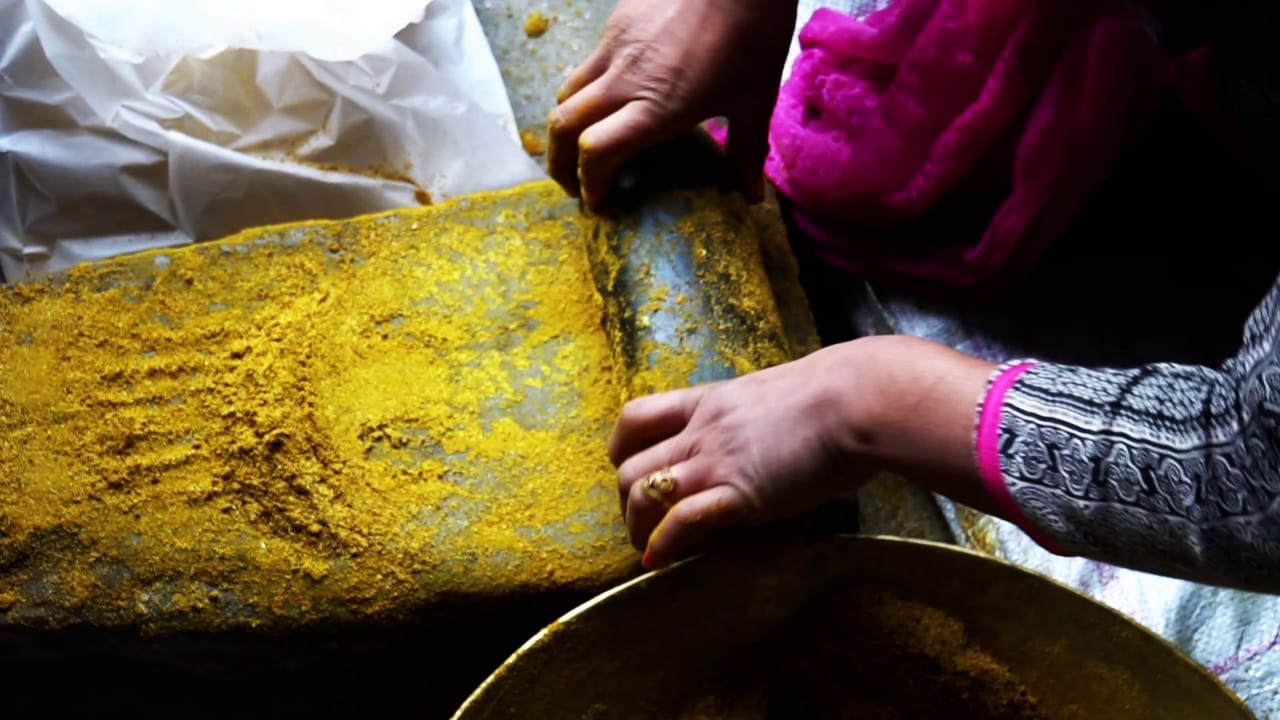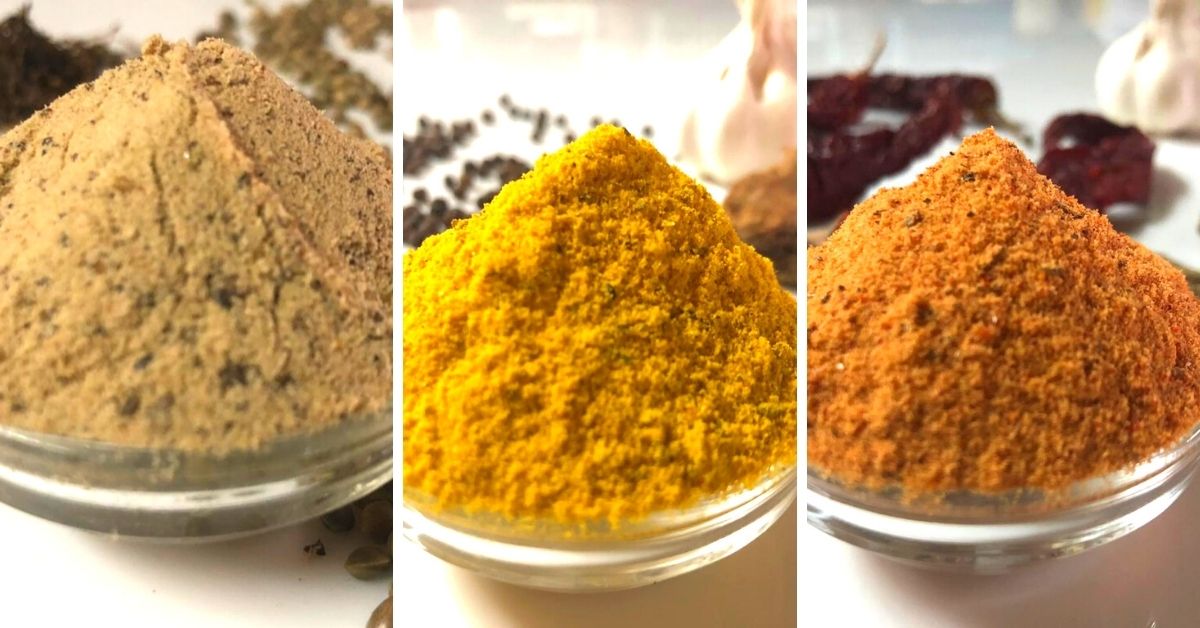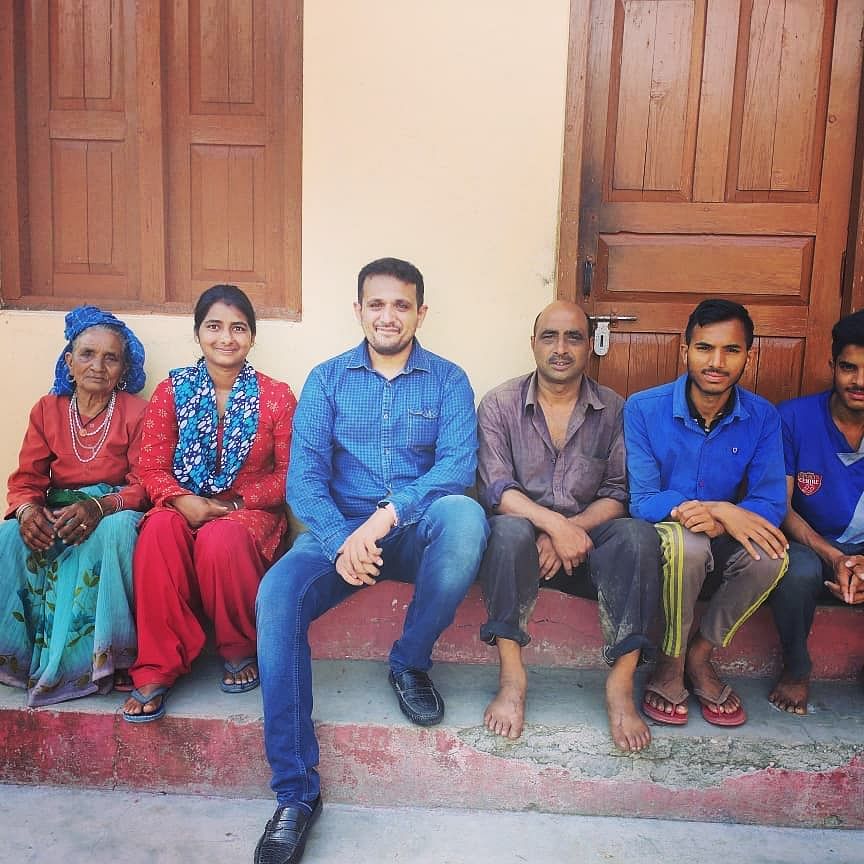Didsari, a tiny village in Uttarakhand’s Uttarkashi district, is known for its distinctive seasoned salts, where almost every household in the village prepares its own salts. It is a very ancient practice to blend regular salt with spices such as turmeric, chilli, garlic, pepper and more.
However, the village was one of the unfortunate regions that were severely affected by the devastating floods of Uttarakhand in 2013. As part of the relief work, Harshit Sahdev, a life coach and counsellor from Dehradun, visited the village to help build a bridge.
Harshit formed an instant connection with the locals and returned to the village in 2018 as a tourist with Chloe, a French national. On interacting with his old pals, Harshit learnt that the village was struggling to stand on its feet. The duo explored ways to help, only this time it would be for the long haul.
It was Chloe who casually remarked about selling the seasoned salts in France after she tasted ‘Pahadi Namak’ (Pisyun Loon) with food. It gave Harshit the idea to sell the salt and help uplift the farmers economically.

The duo invested Rs 10,000 and purchased the salts to sell them in France. The stock was over within days. Seeing the response, Harshit formally registered his startup, ‘Himshakti’ in 2018.
Today, three years later, Harshit is running a successful brand that sells salts and other spices directly to customers across India and other countries like France, UK, the USA, Russia and Vietnam.
So, what makes the Didsari’s salt unique? Harshit shares how the lives of locals are changing, one sale at a time.
Tapping A Salt Lake

Harshit has tied up with five women farmers to make the salt. He supports Self-Help Groups to procure organic produce like spices, salt, flour and tea.
“The farmers belong to remote regions where there isn’t even a proper road connection, let alone have a market to sell their produce. But their culinary wisdom is impeccable. With help from chefs and food technologists, we tweaked the ancient salt recipes a bit. The salts can be used for seasoning and enhancing tastes,” Harshit tells The Better India.
The typical process involves procuring salt from Rajasthan’s Sambhar Lake, India’s largest inland salt lake. The unique feature is its PH level is nine, one of the highest in the world. It is naturally iodized and contains 84 minerals, including zinc and copper iron.
The salt is then ground with locally grown herbs and spices. Harshit extends technical knowledge and financial support to the farmers to ensure quality and taste. This includes seeds, organic fertiliser inputs, tips on water management and so on. Harshit soon plans to collaborate with NABARD and provide more support on growing spices, manure and livelihoods.

Talking about the products, Harshit says, “Our hemp seed salt is gluten-free and has antioxidant and neuroprotective effects. The flavourful salt is derived from small brown seeds, also called ‘Bhaang Ke Beej’. The turmeric salt consists of turmeric, cumin and black pepper perfectly blended in pink Himalayan salt. It is good for your immunity, digestion and relieves pain. The red chilli garlic salt is made from red chillies, Kashmiri red chillies, garlic and black pepper perfectly blended with pink salt. It can be used for seasoning, cooking and marination.”
The pricing of the salts is affordable to ensure a wider reach. Meanwhile, the farmers are paid a fair price. Shubham Pawar, a farmer associated with Himshakti, says, “Marketing is a huge problem for us. But this venture has helped a lot in terms of seeds, fertilizers and revenue.”
The village is also seeing a social change.
One of the women associated with Himshakti walked out of an abusive marriage once she gained financial independence. With intervention from Harshit and other villagers, the matter was addressed and resolved.
On The International ‘Salt Map’

The company currently has a market value of Rs 9 crore and their turnover is in lakhs. The best part? They have got a good response from the clients and the investors available in the market.
Apart from selling salts directly to customers, Himshakti has also tied up with homestays, hotels and resorts such as JW Marriott Mussoorie, Jaypee Residency Manor and La Villa Bethany.
Sunita Kudle, who runs a homestay in Mussoorie, says she serves Himshakti mountain salt along with salads to her guests. “As soon as people taste it, they immediately inquire about its ingredients and where they can buy it,” she says. Meanwhile, Anuradha Chopra, a homemaker from Dehradun, says mountain salt is full of flavour and medicinal properties and is now used more than table salt.
Investors and mentors were equally impressed with Himshakti for its on-ground impact. Hindustan Salt Limited, a government venture, appointed Himshakti as its ‘Marketing Partner’ to promote ‘Gulabi Namak’ (Pink Salt). Since most of India’s pink salt comes from Pakistan, this collaboration is an effective way to popularise the local salt.
The venture even bagged a grant of up to Rs 25,00,000 from IIM-Kashipur and received training on entrepreneurship. This helped Harshit to venture into other products such as cereals, Chaulai, Jhangora, Red rice, Mandua flour, Turmeric, Green tea, Black tea.
While the lockdown situation has restricted their sales, Harshit is hopeful it will pick up once the lockdowns and restriction on movements end.
Get in touch with Himshakti here.
Edited by Yoshita Rao
No comments:
Post a Comment